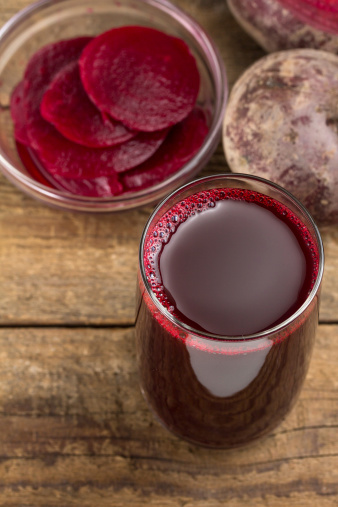 Most people now know that one of the first steps to reducing your blood pressure is to change your diet and include more fresh fruits and vegetables. But most people may not know that just the simple addition of the humble beet into your diet could have some profound and directly immediate effects on your blood pressure.
Most people now know that one of the first steps to reducing your blood pressure is to change your diet and include more fresh fruits and vegetables. But most people may not know that just the simple addition of the humble beet into your diet could have some profound and directly immediate effects on your blood pressure.
The Effect of Beets on High Blood Pressure
Approximately 1 in 3 American adults have high blood pressure, half of which are not on any sort of treatment. This is worrisome, as high blood pressure can vastly increase the risks of heart attack, heart failure, stroke and cardiac death. But, while lowering your blood pressure often seems like an arduous task, a study published in the journal Hypertension found that just by eating more beets, subjects were able to significantly lower their existing blood pressure.
Advertisement
Lead author Amrita Ahluwalia, PhD., and her colleagues recruited 15 adult participants with stage 1 hypertension for the study, whose systolic blood pressures were between 140 and 159 mm Hg (millimeters of mercury). The participants were divided into two groups, and one was given 8 ounces of beet juice to drink while the other drank 8 ounces of water. Blood pressure levels of the two groups were monitored for 24 hours after drinking the fluid, and some quite dramatic – and immediate – results were discovered . The beet juice lowered the participants’ blood pressure by about 10 millimeters of mercury (mm Hg). Participants’ blood pressure showed the most dramatic drop about 3 to 6 hours after the juice was consumed, and blood pressure lowering effects lasted up to 24 hours.
Beet High Blood Pressure with Nitrate-Rich Vegetables
This study adds to a growing body of beet research that has shown similar results. Past research revealed that drinking beet juice has a profound effect on people with high blood pressure, but only moderately lowers the blood pressure of healthy people.
“It is well known that eating fruits and vegetables is good for cardiovascular health,” said Dr. Ahluwalia. However, she adds that vegetables that are rich in nitrates, including beets and their juices, may offer special benefits for people with high blood pressure. Dr. Ahluwalia and her colleagues are currently running another study to determine if people with high blood pressure will continue to experience benefits from drinking a daily glass of beet juice for 28 days.
Beet juice may help to lower blood pressure due to their rich source of the nitrates. When you consume nitrate-rich vegetables, your body converts nitrates into nitrites, and then further converts it into nitric oxide gas. Nitric oxide causes your blood vessels to expand which allows blood to flow more easily, thereby lowering blood pressure. Nitric oxide may also benefit cardiac health in other ways, such as by promoting healthy arteries and preventing blood clots.
For those who prefer eating whole foods over drinking juice, consuming about 2 whole beets will provide you with the same amount of nitrates as one cup of beet juice (along with the additional benefits of fiber and other nutrients). Also, beets aren’t the only food that contains nitrates; for example, kale is an exceptionally rich source of nitrates, as well as carrots, turnips, spinach, radish, cabbage and celery are also nitrate-rich. All of these plant foods are excellent for people who are looking to naturally lower their blood pressure, as well as people who are looking to improve their overall health.
